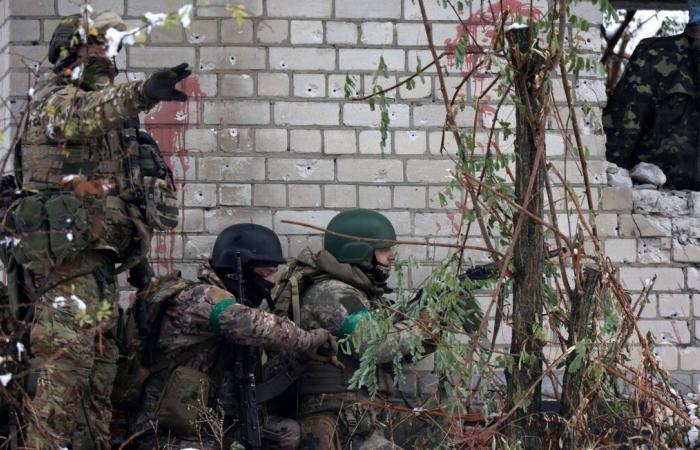Many thought they would sign for a job in security or even defense from Russia. According to an investigation by Financial Times published this weekend, Hundreds of Yemenis are today on the front in Ukraine. Who are they? Why is Russia calling on them? 20 Minutes takes stock for you.
Why do Yemenis come to Ukraine?
According to the investigation of Financial Times, the majority of Yemenis recruited were by force or by trickery. Abdullah, interviewed by the newspaper, explained that he had been promised $2,000 per month as well as a bonus of $10,000 to manufacture drones in Russia. But when he arrived in Russia, a man threatened him with a gun so that he would sign the employment contract. “For many, it’s real human trafficking,” says Carole Grimaud, researcher in Information and Communication Sciences at Aix-Marseille University.
Some are also “seduced by fantastic contracts”, however, underlines the Russia specialist, while in Yemen, the average salary is $70 per month, according to 2018 data from the World Bank. The fact remains that these new recruits “are sometimes forced as part of an exchange of good practices between the Houthis and Russia: 'we provide you with equipment, anti-ship missiles but we need soldiers'”, explains Michel Goya, former colonel of the marine troops, historian and strategist. Because, in Yemen, the Houthi rebels, an armed and political organization, have taken power since 2014.
Why go look for recruits in Yemen?
The transfer of hundreds of Yemenis to the Ukrainian front says a lot about the relationship that Moscow maintains with Yemen. “Russia could not bring mercenaries from such distant countries if it did not have a relationship of trust at the highest level of the State or the forces present,” assures Carole Grimaud who adds that “members of intelligence “Russian exterior” would even be physically present in Sanaa, the country's capital.
“It shows that there is a direct alliance between Moscow and the Houthis,” says Michel Goya. And Moscow provided services to the Houthi rebels which are perhaps today “repaid” by sending these men, sometimes against their will, to the front. At the end of October, the Wall Street Journal revealed that Moscow had provided data to the military group to help it attack Western ships in the Red Sea.
Are they the only foreigners fighting for Russia?
Russia does not make its war “market” only in Yemen. “They are ready to comb all over the world, from Syria to Cuba via Nepal,” slips Michel Goya. Recently, thousands of North Korean troops were sent to support Russia in its invasion of Ukraine. However, “North Korea sent part of its regular army. The soldiers are governed by their command, they have their own stewardship. They are real fighters, not just cannon fodder,” analyzes Carole Grimaud.
“Vladimir Putin wants at all costs to have an army of volunteers and thus avoid forcibly mobilizing conscripts because that would probably be very unpopular,” explains Michel Goya. But this imperative allows Moscow to intelligently focus on its geopolitical interests. Because if, as Michel Goya clearly states, a few hundred Yemenis will have “very little impact on the battlefield”, their arrival is part of “a rallying – or at least an attempt to rally – of all states, groups or militias that have grievances against the United States and the West,” worries Carole Grimaud while members of Hezbollah are suspected of also being engaged in Ukraine. “Russia has opened the door,” she slips. And no one knows who might get involved tomorrow.






